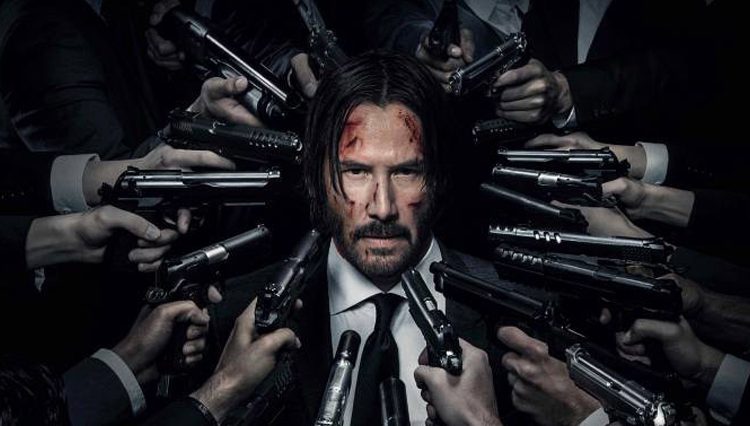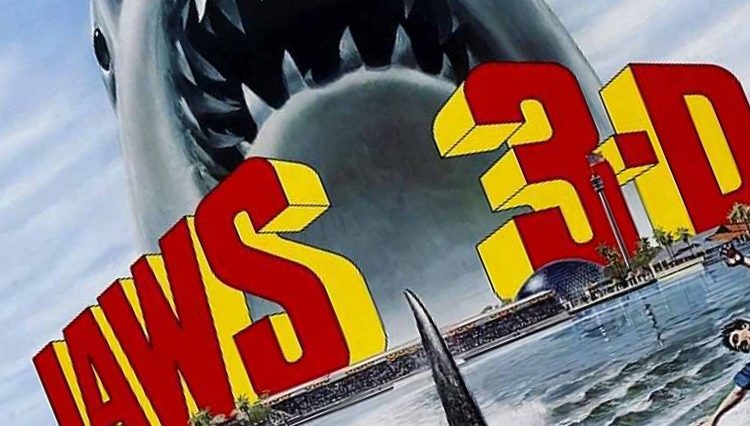“To quote the great Joseph Campbell, he said, ‘It is by going down into the abyss where we recover the treasures of life. Where you stumble, there lies your treasure.'”
Army of the Dead, 2021 (Dave Bautista) The Stone Quarry/Netflix
Did you ever have a dream that refused to end? Sometimes I’d have dreams, and then sequel-dreams, and then sequel-sequel-dreams; aimless, sprawling, pointless digressions filled with visual frenzy with no dictated denouement. My dreams would play out like the middle section of Army of the Dead wherein I know I’ve received my instructions and have taken a bunch of people into a hopeless situation all on the off-chance I’ll get a bunch of money stuffed in a hotel casino vault while fending off intelligent zombies and trying to make peace with my estranged daughter because I didn’t call her after killing her zombie mother. Phew! That was a mouthful!
Sorry for the run-on sentence, but I really didn’t want to interrupt my train of thought with useless periods and commas. It’s kind-of the way Zack Snyder edits a movie. Particularly this movie. Much has been written about homage; that which shows respect or attests to the worth or influence of another. Snyder, being of the generation that is X, seems to trade originality for visual gags that do not pay homage so much as they blatantly rip off their superior inspirations.
Army of the Dead did nothing for me except to make me want to watch the better movies, namely John Carpenter’s The Thing and Escape from New York, James Cameron’s Aliens, Danny Boyle’s 28 Days Later, and strangely enough, Snyder’s own Dawn of the Dead remake. All vastly superior products and infinitely more entertaining than this bizarre Netflix ramble. I’d like to think this mess started when Mrs. O’ Leary’s cow kicked over a lantern and caused the Great Zombification of Las Vegas, but no. It all comes down to a secret military plot to make the perfect army out of zombies.
These are Romero zombies, not O’Bannon zombies, meaning they don’t have a peculiar craving for gray matter, just garden-variety flesh, yet they’re remarkably agile and fast like Boyle’s zombies. Snyder goes a little farther into the Romero canon (courtesy of Day of the Dead) by providing some kind of hierarchical structure with zombies serving as queens, alphas, and workers, and slaves which, in any other movie, might present an interesting ethical quandary.
The problem with all of this is that Army of the Dead is an incredibly silly (and oh-so-slow) movie that wants to be taken seriously, and that idea goes out the window during the “clever” opening credit sequence which shows the spread of zombiedom throughout Lost Wages, Nevada set to an incredibly irritating cover of “Viva Las Vegas” that goes on forever and ever. Vegas has been deemed off-limits, and survivors are quarantined in tent cities analogous to the migrant detainment facilities we heard so much about in the news last year (and the year before).
In the middle of this apocalyptic madness, a casino owner named Bly Tanaka (Hiroyuki Sanada) recruits mercenary-turned-burger flipper Scott Ward (Dave Bautista) to enter the forbidden zone and retrieve $200 million from one of Tanaka’s vaults. Think Ocean’s 11 with zombies or something. I forget the specifics of how much Bautista and his team stand to earn from the heist, but given the aforementioned apocalyptic conditions and the value of money in said conditions, I don’t know that I would readily agree to this ridiculous scheme, but that’s probably why I’m not a mercenary, I guess.
Add to this the low-yield nuke scheduled to be dropped on the City of Second Chances, and we’ve got all the ingredients necessary for tension and drama, yet I feel … empty. I think one of Army of the Dead’s bigger problems is that I don’t give a tinker’s damn for any of these characters. I mean, maybe I feel a little for poor Dave and his pain-in-the-ass daughter, Kate (Ella Purnell), but that’s all the empathy I can spare. Snyder has a (very generous) two-and-a-half hours to work with, but he creates no characterizations. The best “gag” in the movie comes when one of our heroes speculates that this is just a vicious Moebius cycle and that they are all destined to repeat this action forever.
Snyder expects audiences to be familiar with these tired archetypes, and only then to just get along with the movie. These characters serve no purpose except to die and advance the plot just a little. They get into one kerfuffle after another and advance to the next level of what appears to be a live-action video game. Since the characters are lifted, whole-cloth, from The Big John Carpenter Book of Broad Brush Strokes, each appears to have an ulterior motive, but since we’re afforded no back-and-forth, we get no conflict, and thus no reason to care!
Snyder is more invested in the little details than he is in the bigger picture of a story. Army of the Dead is a visually ugly movie. Snyder insists on shooting 90% of the movie with macro filters, cutting caustic swaths across close-up faces while giving us dizzying vistas of blur. I don’t understand what the point of this is. The production staff went to all the trouble of creating a horrific landscape only for the cameraman to blur it out most of the time. It’s maddening and unwatchable.
Now, more than ever, audiences get excited for violence. They want to see graphic violence, which is troubling in and of itself, but there is no “graphic violence” in movies anymore. The consequences of blood and pain have been surgically excised from most (if not all) movies. Case in point: I became desensitized to the violence on my screen five minutes into the opening credits. I might as well have been watching a cartoon for all the carnage I was “experiencing.” I didn’t take any horrific images to bed with me, and I found that disturbing. We watched Oliver Stone’s Salvador last week. There are images in that movie I will never forget. Army of the Dead I forgot almost immediately. In fact, I forgot what this review was about…
This isn’t my first rodeo. I know the violence in movies has been stepped up in recent years, but the blood hangs cleanly on a nonstick surface. This blood can be easily removed. There are no lasting consequences, and, coming to the end of the movie, there was no point to any of this. The zombies were not destroyed, and all but two characters were killed. Army of the Dead does get points for the nihilism, frustration, and oppressive atmosphere but, believe me, those are not selling points. It’s a movie that could’ve been cut down to ninety minutes and nary missed a beat. It’s a waste of time, talent, and treasure. Still, it was better than Wonder Woman 1984.








